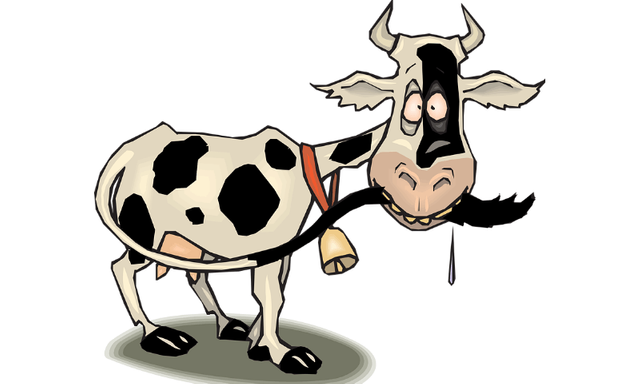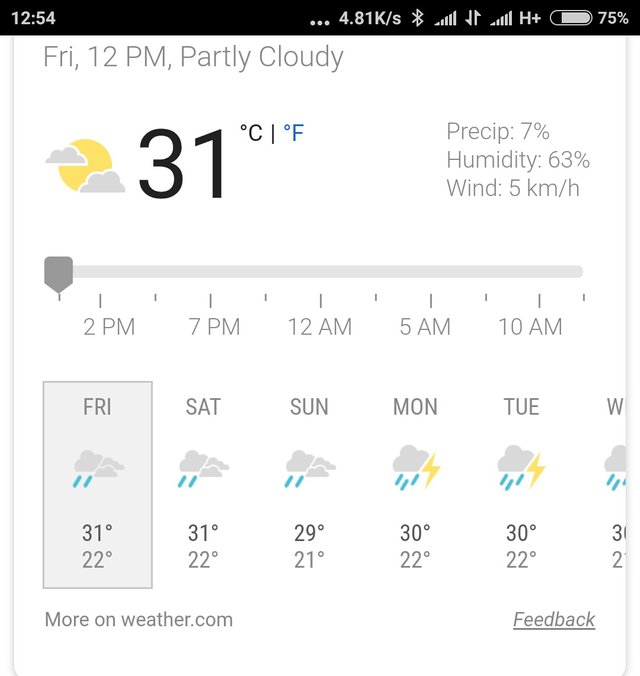Psychology Addict # 40 | How do You React to Your Own Negative Thoughts?

Today we are going to peep through the emotional lives of Damian and Laura. More specifically, through the way they deal with their own emotions when they find themselves in a state of mental suffering; in other words, their cognitive style (thinking style).
Let me inform you that Damian and Laura do not know each other. But, in many ways they lead similar lives, they enjoy financial stability, live in big cities, have healthy social lives and don’t suffer from psychological (e.g clinical depression and OCD) or physical illnesses (e.g heart disease or diabetes). Also, similarly to the men and women who took part in the study ref. conducted by R. Davis and S. Nolen-Hoeksema, Damian’s and Laura’s measures on task switching as well as on working memory abilities do not differ.
Nevertheless, despite the numerous characteristics they have in common, these two individuals become very different from each other when it comes to the way they think and behave towards their own negative feelings.
Damian - The Ruminator

In general Damian states that he has a good life. However, he presents a particular thinking style that makes his unpleasant emotions that much more uncomfortable for him: Cognitive Inflexibility. This, consequently, contributes for Damian to ruminate; ref. which means that whenever something emotionally distressing takes place in his work, family or romantic relationship he focus his attention on his low mood, and has negative repetitive thoughts about its causes and consequences. ref..
For example, a few months ago Damian had a heated conversation with his father, who made a couple of unpleasant remarks in a rather harsh way. A few hours later Damian’s dad had put everything behind him; Damian, on the other hand, was still ruminating about the situation a week after that. In a sort of behavior that reminds me of what Davis and Nolen-Howeksema put forward in their research. They say that instead of being proactive about their sadness, ruminators just keep on reflecting about how terrible they feel ref.
Unfortunately, for Damian, this passive thought process and manner of behaving will only sustain and perpetuate his low mood and depressive thinking.
Why Does He Ruminate, Then?
What psychologists mean by individual differences, in a nutshell, is what makes people unique when it comes to their peculiar psychological attributes (e.g IQ levels, personality, cognition etc...). Various studies ref. have found that rumination is one such peculiarity ref.. Hence, while some people (like Damian - aruminator), will just passively partially digest, chew and swallow his negative emotions over and over again (pretty much like cows do with the cud); others (like Laura) rather focus on finding a solution in order to feel better, nonruminators.
Despite rumination being a coping strategy, it is, however, a maladaptive oneref.. For instance, this is a mechanism that diminishes individuals’ keenness to take part in mood-lifting activities and it is linked to the recalling of bad memories about oneself as well as to negative interpretation of events. ref.
While neuroticism (a personality trait) correlates positively to repetitive negative thoughts, ref. making neurotic individuals more prone to resort to such coping mechanism. Research reveals that rumination may as well be a result of cognitive inflexibility.ref.

Cognitive Inflexibility
Cognitive inflexibility is the inability of effectively changing thoughts and behavior as a means to obtain desired future outcomes. ref.
That describes Damian quite well, who, despite not being clinically depressed, finds himself ‘stuck’ in this particular mode of thinking, struggles to see a different way of coping with distressing emotions, and tends to abandon helpful coping strategies even when they bring about positive feedback. ref.. Damian, for example, knows that if he takes the time to watch an action movie, his mood will be lifted (at least for a while). But, he never does that when he is upset.
Davis and Nolen-Hoekseman found that men are more likely to ruminate as a consequence of cognitive-rigidity than women. Also, men report their rumination and sad moments less than women. Additionally, the two psychologists found that when new strategies are required to achieve optimum performance and success nonruminator men are more flexible to adopt them than ruminator ones.ref. For me, this just lends support to how set in their own ways ruminators can be!
Not everyone is like that though.
Laura - The Nonruminator

Laura also had an upsetting conversation with a family member, her sister. They were both hurt. And, the fact that she is a nonruminator doesn’t mean she didn’t feel sad about what happened and behaved accordingly. After all, negative emotions do have a greater and longer lasting impact on us than positive ones. It is the way we are built. ref. Still, Laura has a different approach to such occasions than that of Damian’s.
Whenever she finds herself emotionally involved in distressing situations, she observes the consequences her thoughts have on her behaviour. It is as if she begins to watch herself from a neutral perspective. This prevents Laura from being swallowed by sadness and worry; which, in turn, frees her mind to find solutions to move on.
As hard as this may sound, you can succeed in it. Believe me.
Become your own self-observer
There is a Northen Irish man, Brian Keenan, who resorted to such strategy during the time (5 years) he was held captive by Shi’ite militiamen, in Beirut. In his inner fight to keep his mind sane he decided:
to become my own self-observer ... letting madness take me where it would as long as I stood outside and watch it .
(Keenan, p.85)
In his book An Evil Cradling he also confessed “I allowed myself to feel and think all the things that were in me, but at the same time could stand outside observing and attempting to understand”.
Through this approach Keenan managed to endure extreme fear, hopelessness and mental chaos. If he could do this under food deprivation, imprisonment, and constant threat, I have all the reasons to believe that you and I can succeed in it under the comfort of our homes.
However, for that to happen we need to be aware and non-judgemental. The latter is a particularly important facet of this process, because it gives rise to acceptance which paves the way to openness and the search for new prospects. For reasons that when we are non-judgmental about our thoughts and the way we feel, further elaborations and (mis)interpretations of circumstances, its causes and outcomes are less likely to happen. ref.
Why Bother?
I have come across many people who fail to understand why harbouring negative repetitive thoughts is simply not good. Unsurprisingly, most of them were/are actually individuals who tend to ruminate. You see, ruminators do report that through such process they feel they gain understanding into their emotional issues. ref. An impression that dangerously encourages them to keep on ruminating. Dangerously because, rumination is associated with cognitive impairment, entrapment in negative moods, reduced confidence in one’s decisions, and poor effective reasoning. ref. No wonder why Damian feels bewildered.
Taking Action

If you are a ruminator, this post, hopefully, will have enlightened you about a possible reason as to why: Cognitive Inflexibility - a rigid way of thinking. Even more so if you are a man (as women are more likely to ruminate because of socio-environmental reasons ref..)
Sometimes we find ourselves not necessarily depressed or anxious; but we have the feeling that it is so because of the saddening thoughts that keep crawling in our minds. Then, we focus on them and begin to feel low, and victimize ourselves, and to worry… We then become hypersensitive, begin to place disproportionate importance in small events, which makes us feel even worse. It just goes on and on. You can see this is not a healthy pattern! It is detrimental to us and to those around us. Now, I hope, you understand how necessary it is to break this cycle. For the sake of our subjective well-being (how we feel inside) as well as of our relationships.
But, please, don’t get me wrong, I am not suggesting you to simply live in denial and put everything behind you. Not only do you need to reflect about what distresses you; but, you must. Nevertheless, not in a ruminative way.
Our thoughts work very much like glasses through which we read the world around us. So, let’s imagine we have quite a few of them at our disposal. But, because of our inflexibility we stick to the one that lead us to read the world through the lens of anguish.
Psychological findings like this truly help me understand some of the enigmatic text of the the Tao te ching by Lao Tzu, who, in section 76, says the following:
The stiff and strong are death’s companions
The soft and weak are life’s companions
In what metaphorically tells me that rigid thinking is a route for a shattering existence, whilst its opposite, flexibility, is one of the tools that makes us achieving, peaceful beings.
Reference List:
Baumeister, R. F., Bratslavsky, E., Finkenauer, C., & Vohs, K. D. (2001). Bad is stronger than good. Review of General Psychology, 5(4), 323-370.
Davis, R.N., & Nolen-Hoeksema, S. (2000). Cognitive inflexibility among ruminators and nonruminators. Cognitive Therapy and Research, 24, 699-711.
Evans, D.R, & Segerstrom, S.C. (in press). Why do mindful people worry less? Cognitive Therapy and Research.
Tzu, L. (1972), Tao te ching, New York, Hackett Publishing
Keenan, B. (1993), An Evil Cradlng, London, Vintage
Segerstrom, S.C., Stanton, A.L., Alden, L.E., & Shortridge, B.E. (2003). A multidimensional structure for repetitive thought: What’s on your mind, and how, and how much? Journal of Personality and Social Psychology, 85, 909-921.


Thank you, dear reader, for taking the time once again to read my post 😊 Now, would you be so kind as to let me know : How do You React to Your Own Negative Thoughts? Are you more like Damian or like Laura? 😃
I wish you all a wonderful weekend!:)
Oh, wow.. Your style of writing keeps getting better with every article. It is obvious that you enjoyed writing it, which makes me enjoy reading it!
On the topic
I would say that most of the times I am Damian. I tend to keep negative emotions and thoughts for a longer time than I would like to. But here I would like to make a clarification or an attempt to add another perspective to your story.
Sometimes people feel/act like Damian, because of their self-observation, not because of cognitive impairment. (When I say people I actually mean myself also, because I am projecting at the moment.. Oops 😅)
Anyway my point is that sometimes too much self analysis and reflection actually makes you more anxious which leads to overthinking and reexperiencing negative thoughts and feelings over and over again.
Depending on what these thoughts are related to (could be something short term related like family argument, work problem, exam etc.) When that is the case the negativity and anxiety fade away when the event is not present anymore or lost it's significance.
But when these negative feelings and thoughts are related to something on the long term (traumas, personality problems) things are getting really serious and unpleasant for the one experiencing them. He actually becomes the victim of himself- his self-reflection the mechanism build to analyze and help him becomes an enemy, emerging suddenly then disappearing. This cursed circle of psychological process within a healthy individual (referring to your definition at the very beginning) could lead to some quite unpleasant conditions like anxiety disorders (Ocd, panic attacks) and depression.
Damian should allow Laura to appear more often, because her presence is healthy for him. BUT she can only do so if he allows her. If he is happy he would invite her himself and they would build a beautiful and healthy world (the person's complete fully functioning personality).
For me, Damian is mostly present, searching for answers in the negative emotions and thoughts reliving them and looking at them from different perspectives. After he is done, sometimes he discards them, but more often he keeps them locked into his wooden chest, because sometimes he thinks he would need them, transformed into defensive reactions to similar situations which created them originally. Laura would only come if invited or when she finds an opportunity to sneak in, while Damian is distracted. She would clean his mess and try to hide his wooden chest, but as Damian returns, he always finds it, chases her away and continues his work...
@dysfunctional ... will you stop talking about me ... lol. @abigail-dantes such a well written post and consequential conversations. I find Im now thinking of people Ive known and which road they take. As I work my way through my own book of life I find that reading such posts and studies make me sit and analyse my C.Ptsd condition. Although Damian and Laura are generally happy and well adjusted Suzan struggles to be. However, learning that there are alternatives leads the thoughts to look for a roadsign to a way out of the cow field and into the dairy. Let the cows ruminate while I learn to take milk and make ice cream.
Thank you for your contribution to the well being of your fellow humans.
Thank you for sharing this incredible insight here on my feed @suzanrs. I love your analogy! Yep, let us leave the ruminating to the cows and spend our energy on making and enjoying ice-cream 😃 ❤
What a most wonderful comment @dysfunctional (very psychoanalytical!) 😊 The perspective you presented here makes me wonder whether there actually is a fine line between self-observation and rumination.
Does self-observation becomes rumination when it enters this state?
Does rumination give way to self-analyses/observation
therefore allowing the person to think clearly and objectively, and then welcome the Laura part of the self?
Further, it would be interesting to speculate whether Damian resists to Laura's actions (eg. clean his mess), and inviting her in as a result of rigid thinking.
Oh! thank you for giving me the opportunity to reflect on this from this perspective Dysfunctional, I read your comment with a smile on my face in awe of your train of thought.
Your last paragraph is beautiful, an this is why I am so passionate about my writing here. Because there are people like you (and many others), who I have the privilege to interact with and learn from ❤
That would be ideally speaking. Sadly that's not the case in reality.. I personally think that Damian does not allow Laura to take over by herself. They must live in peace with each other..
Your article provoked my thoughts and comments, so thank you. :)
Hey @dysfunctional
Here's a tip for your valuable feedback! @Utopian-io loves and incentivises informative comments.
Contributing on Utopian
Learn how to contribute on our website.
Want to chat? Join us on Discord https://discord.gg/h52nFrV.
Vote for Utopian Witness!
I don't really dwell on negative thoughts, but I always think about reasons why, what, how, when and so on.
After that analysis and conclusions I just move on :)
About being flexible, I'm always laughing how everything interconnects when you look at the big picture.
“You must be shapeless, formless, like water. When you pour water in a cup, it becomes the cup. When you pour water in a bottle, it becomes the bottle. When you pour water in a teapot, it becomes the teapot. Water can drip and it can crash. Become like water my friend."
Bruce Lee said that, not exactly a psychologist. I think it fits quite well here.
Have a nice week Abi! :)
Hey Sim :)
It sounds like Bruce Lee read the Tao 😉
Or he drank a lot and had thoughts like that. How that sounds? :)
I find interesting the separation of ruminators from solution-finders. I always felt that ruminating on a topic is tantamount to seeking a solution, whereas not ruminating on it is equivalent to ignoring it and hoping that it will go away by itself: a mood-lifting activity, for example, does not seem, at least on the face of it, to contain anything solution-related to a son's fight with his dad.
Perhaps because the coping strategies are trying to change his emotions rather than fix the real problem which is outside of him?
Of course that may be overly simplistic, as I guess all manner of styles and combinations exist: fruitful and unfruitful ruminators as well as fruitful and unfruitful non-ruminators.
Interesting sex-differences!
A nicely written and balanced post, and I liked the forays into Keenan and Lao Tzu. It's nice when examples from the real world or from literature are brought in to make the scientific topic being discussed more lively.
An interesting question, or thought, is how much Keenan's method of observing from an objective POV might be related to a body's automatic strategy of depersonalization as a result of severe trauma and abuse.
One of the people I like and follow is Michael Shermer of Skeptic magazine fame. Yesterday I received an email from Skeptic about a new book called Unfuckology - behavioral self-help based on strict science - and there's a whole video interview with the author that I haven't watched yet (cos it's 1.5 hours long!). So anyway I wanted to bring that to your attention!
Gosh! I forgot to address this observation:
An interesting question indeed! 😊
As you know, in depersonalization the sense of detachment is both from one’s body and thoughts. In Keenas’s case, based on what I read on his book, I dare to say that the fact he was aware of that detachment, and trying to understand his emotions, might indicate that was more a coping strategy than a consequence of the trauma/cronic stress per se.
Although, what might also have happened is that he felt that way in hindsight. But,when it actually happened it was more of a depersonalization process than a mindful one.
Good observation about hindsight!
First I'd like to say the cute cow with the bell w. It made my morning. It reminds me of my favorite milk as a child :)
I wish there's a switch to turn off rumination. Life would be super awesome if there's such a switch. But be that as it may, crying over spilt milk has never in the history of mankind replaced the wasted milk. It's just like trying to control everything, anyone who does that has definitely set himself/herself for failure. I see the constant rumination as self-imposed punishment similar to guilt when you think you are the cause of a problem. The non-ruminators live an enviable lifestyle.
Ahahahahaha I am glad you noticed the cow! I suppose it helps to lift the seriousness of the topic a little bit :)
We are fascinating, complicated creatures Green. Even when everything is externally fine, there are still cognitive tendencies that might make life difficult for some of us.
Thank you for stopping by 😘
Have a great day :)
Lunch time over here (It is SO hot!)
Check out the temperature here
It's crazily hot. But we loving it :)
Oh! 😅
Still 2 hours until midday here! 🔥
This post has been voted on by the steemstem curation team and voting trail.
There is more to SteemSTEM than just writing posts, check here for some more tips on being a community member. You can also join our discord here to get to know the rest of the community!
Thank you guys 😊
i agree that ,that is so true
in regards to how i react to my negative thoughts , i think sometimes i am Damian , sometimes Laura , but more like Laura when i became a mom , Laura now because as much as the situation would want me to feel low or down i am considering my family , especially my kids and how it would my second , my minute , my hour and the whole day. motherhood had brought a lot of changes to me really , before i got lots of instances where i am like Damian , lots of negative thoughts spinning in my mind , then will start to convince, oh Aubrey , you are sad , you have to be sad , you have to cry.. LOL
there miss Abi , another interesting topic from you. How are you today? hope all is well po. thanks again very much always and always. much love for you from us , good evening from PH 😘❤️❤️❤️
Yes, you see how it works? It is interesting right? :) Feeling well comes easier to some people than to others; but, this does not mean we have to succumb in sadness! Sometimes all it takes it is a little understanding and a shift in attitude for things to improve inside and outside us!
I am very happy to hear you have abandoned that cycle of negative thinking! ❤️ 😊
I have been very well over here. Thank you for asking my dear. You are always so loving, and thoughtful :)
ps: I trust Freia is feeling 100% again!
so happy to know you're doing goood miss Abi , you deserve all our love and the happiness in the world because of your kind and helpful heart too.
Freia is very well already since Friday afternoon , then sad part is Alex my second got fever Friday night , but good news , fever seems to leave her right now
thanks miss @abigail-dantes 😘❤️❤️❤️
Hello there, dear Abby! This is a brilliant piece of work! I enjoyed reading it very much!
Ever since I learned about coping strategies in university, I have been fascinated by them. As you said, a coping strategy is something that can bury you deeper in sadness, anxiety, anger, etc or get you back on your feet.
In fact, last year I tried to create an assessment tool to distinguish adaptive from maladaptive coping strategies as part of a project at work. It was a very interesting subject to explore.
There is something I really like about CBT. It has some great strategies to transform the rumination (or any other maladaptive coping strategy) into a more successful coping mechanism.
Anyway, I really like how simple and easy to understand you put this concept. I sent it to someone who I really care about. Unfortunately, he wouldn't listen to me. I hope he reads it and gets an insight.
See you!
Hello @insight-out 😃 It is nice to see you around :)
It pleases me very much to know you enjoyed this post, and I am also glad to hear that I managed to not complicate things (the topic/concept). Thank you for saying this! ❤ I really value the feedback I receive from those of you who take the time to read my work.
When I started here I used to hear a lot of things like: your posts are too long, too many complicated words, it is too technical ... Ahahaha ... Oh Gosh! 😅
It sounds like we will be reading many interesting experiences from your work/study on your blog (eg. the tool you developed for coping strategies, for example). Like you, I am also a fan of CBT methods.
Oh, between us, I wrote this post also as a kind of a message to someone 😉 I wish you good luck with your someone! :)
All the best to you and to your family.
It is difficult to please everyone with the content we are creating. Sometimes it is impossible to keep it short - too many important things to say :)
Unfortunately, I am still waiting for the "someone" to read it :)
All the best to you, too, Abi!
Hello @insight-out 😃 It is nice to see you around :)
It pleases me very much to know you enjoyed this post, and I am also glad to hear that I managed to not complicate things (the topic/concept). Thank you for saying this! ❤ I really value the feedback I receive from those of you who take the time to read my work.
When I started here I used to hear a lot of things like: your posts are too long, too many complicated words, it is too technical ... Ahahaha ... Oh Gosh! 😅
It sounds like we will be reading many interesting experiences from your work/study on your blog (eg. the tool you developed for coping strategies, for example). Like you, I am also a fan of CBT methods.
Oh, between us, I wrote this post also as a kind of a message to someone 😉 I wish you good luck with your someone! :)
All the best to you and to your family.
oh ... ruminating! Very bad thing that is ... painful
Everything that has left the present moment can basically remain exactly as it was, because the past will not change anyway. What was said was said. Done what you've done. In Germany we have the word "post-think" - the opposite of pre-think. Anything you want to pre-think or post-think instead of practicing smooth authenticity at the moment an event arises is suitable for ruminating.
I believe that even talking badly behind someone else's back belongs in the category, especially when those involved carelessly - sometimes even with pleasure - participate. That is then public ruminating:) Talking badly about others means that you are not interested in a solution but only in confirming the bad opinion about someone. To confirm a bad opinion means you must find strong attributes which denigrate the object of discussion. In fault finding one can ruminate on and on. One subject leads to the next. Like a lawyer to make a case where actually is no case.
To answer your question:
I am Damian and Laura and also Bertha, Edgar and Martha. Means that depending on circumstances, my state of arousal and mindset at that time
determines my pull towards ruminating or distancing from it. I found myself a crazy animal as well as a wise judge.
I had times where you could have called me a best practice ruminator, filling my mind with garbage like I was the lawyer from above. Luckily I write most of my ruminating thoughts down and when I look at them later on I can see how biased and aroused I indeed was.
When I stretch my lifetime and observe the peak of my diary entries I can tell that I had high peaks during my puberty and within life crisis and other difficulties.
Writing for steemit is kind of leading a diary by analyzing other objects and not myself - it shows me the abundance of characteristics and also that everything which is a tendency of a person can be initiated as well as calmed down. It needs wise people to act towards a ruminator and if they become a majority the ruminating person will most likely stop doing it as there is not enough encouraging resonance from the outside to feed it.
Because, after all: to ruminate inwardly (in the sense of not able to stop thinking) requires to be alone, right?
Where meaning is given the potential for both ruminating and not ruminating is there.
Hi Erika ❤ :)
You see, you are my Mathusalem. I like your idea of public rumination and found the example you used to illustrate it a very relevant one.
I respect the way you always manage to expand the context being discussed, as if you don't allow the individual to bear the burden on his own (well, you are a systemic counselor after all). And, yes, I agree with you: passive rumination require loneliness; or, perhaps even isolation.
I share your view about Steemit too :)
as well as the habit of writing down my thoughts and analyzing them later 😉
Much love to you :*
❤
Before steemit I was writing for my hard-drive (except my special theme blog which is quite some time ago).
Very much so. I am a systemic thinker through and through and I think we are all feeding us back and forth. If there is no support from the system than things get boring and uninteresting for a certain topic.
What about you? Have you also thoughts about your own writings that some of them are deeply embarrassing and some you are impressed of?
Have a good week,
yours Methusalem :)))
I have, yes :) I have also noticed that when I write about unhappy times my writing is a lot longer and detailed than when I write about joyful moments.
😍Saludos mi estimada…
Jejeje jejeje de verdad que sus temas son buenos. En mi particular opinión es cierto que no siempre es fácil sobrellevar las circunstancias de la vida y más si esto genera negatividad a nuestros pensamientos.
Al leer esto:
Pude dar respuesta a sus preguntas:
Tuve una conversación con un amigo con respecto a unos problemas por los que él está pasando, ya que tiendo a tomarme muy enserio las cosas que veo en los demás y bueno de alguna manera u otra es como si me afectaran a mi directamente y como yo en su momento las solucionaría…
En esta conversación yo le decía, que prefería mantenerme al margen porque sonará raro, quizás yo sea un extraterrestre pero yo en lo personal evalúo las situaciones y trato de resolverlo rápido sin tanto drama ni problemas. Trato de matar la culebra por la cabeza como decimos coloquialmente aquí en mi país para que de alguna manera u otra no me afecte tanto el asunto y no haya tanto drama. Asumo, tiendo a ser como Laura, evito o trato de buscar soluciones y no sumergirme en pensamientos negativos o raros de que pudo ser de tal forma y no fue.
De verdad que nos pone a evaluarnos, jejeje eso sí que es bueno…
Creo que cada vez, puedo darme cuenta de cómo soy y quien soy.
Un fuerte abrazo, se le extraño en estos días de ausencia…
Well my dear @jayoxaju, what can I say? 😊 If I had to guess I would have guessed that you are more like Laura too.I say this based on the reflections you kindly share with me :) This is positive, productive way of thinking and, therefore, being. It allows for booth good physical and mental health. You truly are a gem!
You are very sweet for saying this. Thank you for your loving words and support always my dear! 😘 But, I know you understand that sometimes I take the weekend off just to relax away from the computer! 🌞
Lots of love to you and your beautiful family!
Así es!!! A veces necesitamos un pequeño espacio fuera de este mundo para nuestros seres queridos y mas si es nuestra costillita (esposo).
Besos mi estimada...
❤😊
Damian here has a very simple life quite easy going and no health challenges, the reason why he choose to be a ruminator is not really understood by me however I should tend you that people who find in difficult to move on after things like heated challenge between loved ones are often prone to commit suicide, they feel they're worthless and the more they go deeper into the abyss of their dark thoughts the more they don't want to to get out, they feel that feeling good is a weakness and they need to engross themselves in those kinda thoughts in order to feel closures .
I use to be a ruminator but it was because I had health challenges, I was broke and broken and all the poems and fiction I wrote on my sick bed were suicidal, you see?
But Damien here is different he definitely did not go through what I went to through, but sometimes it's even more deeper more darker and more complicating than we know or see, it could be as a result of loneliness or idleness that's brings out this ruminating tendencies, but it's more than definely that.
I didn't see a post front you last Friday, I hope you're well? It's alarming to miss your splendid Friday weekly, absolutely, thank you for bringing this through, I'm so elated I ready.
Hello my dearest @josediccus :) How nice to see your comment!
This is not really a choice Josediccus. It is a consequence of his psychological make up, as psychologists concluded that rumination is just yet another type of individual difference, due to cognitive inflexibility and not necessarily loneliness or idleness, which actually might be factors that enhance his rumination tendencies.
I am sorry to hear you went through times of mental and physical difficulties; but, I am very pleased to see you made it through it and are here gifting us with your beautiful poems! You have a gift 😊
Ps: Thank you for noticing my absence last Friday 😅 Everything has been fine. I just felt the need to take a break from my office/computer last weekend and enjoy the summer with my husband.
Much love to you always my dear :)
Wow and the fact that he is unaware of this conundrum that he's in makes it perplexing, one at times cannot explain how they're emotionally shaped up, it's generally experienced by people around them. So many people are like Damien and are generally unaware of the situation.
Thank you so much for this brilliantly written subject you brought today and thanks for clarifying to me as well.
Yeah u guess sometimes a break is needed from laptops and internets and all, I hope you're rejuvenated again?
You got it! 😎
Ahahaha, yes Josediccus, I do feel re-energized after my break :) ✨
💖💖💖 😀
I like the opinion of Victor Frankl on this topic. The man went through the horrors of fascist concentration camps only for the reason that he taught his mind to be distracted from negative thoughts. I think this is a very good live example.
Too much credit is given to Frankl's book (mis-titled as well in my view). Most people who survived the camps also survived mentally. Thank our biology.